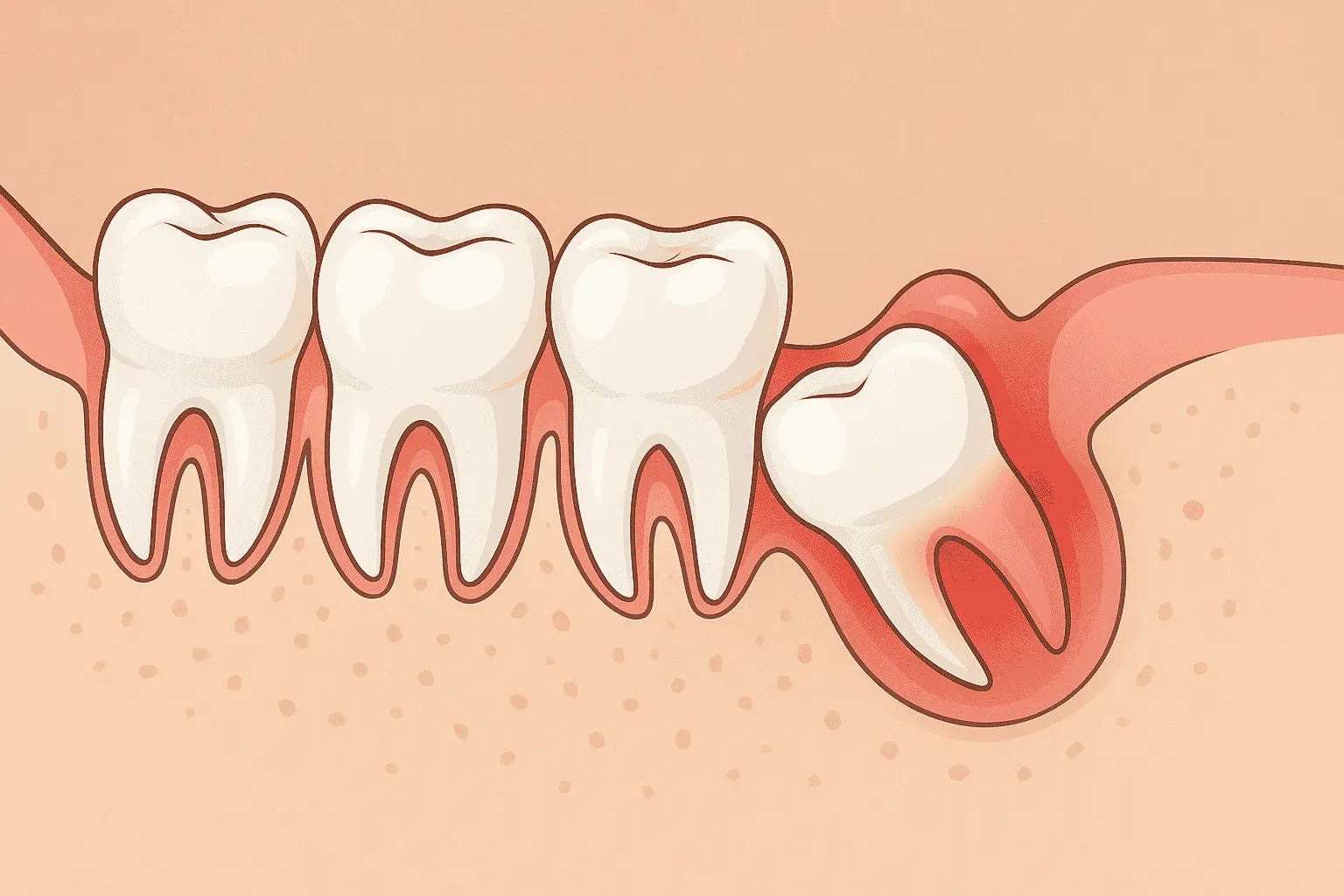


Have you ever felt a dull, persistent ache at the back of your jaw? You might brush it off as stress or sleeping wrong, but for many young adults, that discomfort signals the arrival of wisdom teeth. Also known as third molars, wisdom teeth usually appear between the ages of 17 and 25.
While some people experience no issues, others face pain, swelling, or misalignment. Understanding wisdom teeth and proper care can prevent infection, misaligned teeth, and jaw complications.
This ultimate guide will cover causes, symptoms, treatment options, recovery, prevention, myths, and FAQs—everything you need to navigate this common dental milestone.
Wisdom teeth are your last set of molars, located at the very back of your mouth. Anthropologists believe they were essential for our ancestors, who had larger jaws and diets consisting of tough, raw foods. Today, smaller jaw sizes often lead to impaction, meaning these teeth don’t fully erupt or grow at the wrong angle.
Impacted wisdom teeth can cause pain, infection, crowding, and even damage surrounding teeth. Some, however, emerge normally and remain healthy for life.
Wisdom teeth problems usually arise from:
Additional risk factors include delayed dental checkups, poor oral hygiene, and habits like teeth grinding (bruxism).

Wisdom teeth can remain hidden for years. Warning signs include:
Subtle signs, like mild pressure in the back teeth or gum irritation, may indicate early problems. Timely evaluation can prevent severe complications.
Early evaluation helps determine whether extraction is necessary. Dentists may use:
Proper diagnosis ensures that treatment targets the root cause, not just the symptoms.
If wisdom teeth erupt normally without pain or misalignment, dentists may simply monitor them with regular checkups.
When teeth are impacted, infected, or crowding others, removal is recommended. Types of extraction include:
After extraction, pain is usually managed with:
Recovery typically takes 1–2 weeks, with swelling and discomfort peaking in the first few days.
Tips for smooth recovery:
While rare, wisdom teeth can lead to serious issues if untreated:
Seek immediate dental care for severe swelling, fever, or persistent pain.

Myth 1: Everyone needs wisdom teeth removed.
Fact: Only teeth causing pain, infection, or crowding require extraction.
Myth 2: Extraction is extremely painful.
Fact: Modern anesthesia and sedation make the procedure comfortable; pain is mostly post-op and manageable.
Myth 3: Removing wisdom teeth changes facial shape.
Fact: Extraction protects oral health but doesn’t alter appearance.
Myth 4: Wisdom teeth always cause problems.
Fact: Some erupt normally without issues.
Q: At what age do wisdom teeth appear?
A: Typically between 17–25 years old, but timing varies.
Q: How do I know if my wisdom teeth need removal?
A: Persistent pain, swelling, infection, or crowding are key indicators.
Q: Can impacted wisdom teeth cause headaches?
A: Yes. Pressure and misalignment can radiate pain to the head or ears.
Q: How long does recovery take?
A: Usually 1–2 weeks; swelling and discomfort peak in the first few days.
Q: Can problems with wisdom teeth be prevented?
A: Yes. Regular dental visits, proper oral hygiene, and timely evaluation can prevent most complications.
Q: Are surgical extractions risky?
A: Modern techniques, anesthesia, and sterile procedures make the surgery safe in most cases.
If you are experiencing jaw pain, swelling, or discomfort at the back of your mouth, schedule a consultation with your dentist today. Early evaluation ensures your wisdom teeth are managed safely, preventing pain, infection, and misalignment. Protect your oral health and enjoy a confident smile for life.